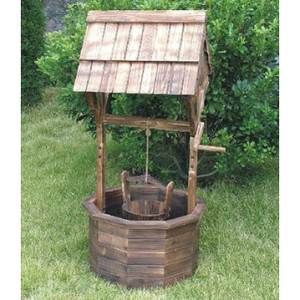A young family visiting Door County for a weekend in mid-September were the subject of a public health investigation when they returned to their Calumet County home and their four-month-old daughter came down with an illness that was identified as E. coli bacteria from a bovine source.
 “The department of health got involved. They asked me where I was. That was several phone calls, to try to narrow it down,” said the infant’s mother (she asked that we not use their names).
“The department of health got involved. They asked me where I was. That was several phone calls, to try to narrow it down,” said the infant’s mother (she asked that we not use their names).
It turns out the family had stayed that weekend at a West Jacksonport home now identified as in the area of concern for well contamination after a Sept. 8 manure spreading session that included spreading into a sinkhole. This was the Monday after torrential rains wreaked havoc and saturated the landscape.
“I used well water to make her bottles,” she said. “No odor or color to the water. There was no sign.”
And there was no sign in the baby that she was ill until the family returned to their Calumet County home. Then she started exhibiting signs of food poisoning and was brought in for a medical examination, where it was determined that she was infected with E. coli.
“The department of health nurse said since the E. coli was combined with a campylobacter bacteria, that’s really indicative of a bovine source. They were able to track it to the source based on the type of bacteria in the water.”
The mother said she does not understand why manure spreading is not more regulated.
“Especially with the fractured bedrock and shallow soil. It doesn’t take much for it to get in the groundwater.”
Reporting on the West Jacksonport well contamination at the Nov. 10 meeting of the Door County Board of Health, Door County Health Officer Rhonda Kolberg said drinking manure-contaminated well water in the area of concern after Sept. 8 sickened a total of seven people.
“They were spreading as they normally would. They spread into a sinkhole, which they should not have done,” Kolberg said. “We found out about it because the people with the affected well called DNR, and their water was brown and foamy.”
Mark Borchardt, the U.S. Department of Agriculture microbiologist who helped track down the 2007 source of contamination at The Log Den when 211 customers and 18 employees were struck with gastro-intestinal illness from norovirus at the recently opened restaurant (the outbreak was eventually traced to the restaurant’s new septic system), did the viral testing of the West Jacksonport wells.
“He was trying to find a correlation between manure and the water,” Kolberg said. “He did determine it was bovine contamination.”
